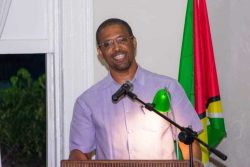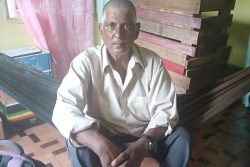LONDON, (Reuters) – IAAF chief Sebastian Coe said on Thursday he was disappointed by the lack of progress being made by Russia in cleaning up its anti-doping regime and made it clear that the ban on the country’s athletics federation would continue indefinitely.
Speaking after a meeting of the International Association of Athletics Federations’ ruling Council, Coe said obstacles had continued to be put in the path of the Taskforce appointed to oversee the transformation of Russia’s anti-doping operation.
“There has been some progress but there are still some very big gaps and I’m disappointed,” Coe told reporters.
“Council was disappointed and concerned to learn that the prospect of the milestones being fulfilled this year by RUSAF (the Russian athletics federation) remains a distant one.”
Coe identified problems around the number of doping tests being carried out, Athlete Biological Passport records being withheld from testers, some athletes still training in ‘closed cities’ with no access for doping control personnel and coaches who were tainted by the previous regime still operating.
He was also unimpressed that RUSAF’s head coach had declined to sign the organisation’s own pledge for clean athletics.
“We will continue to be tough. There is no timeline here,” Coe said. “We will look again in July and make a judgement, but we are going to see this through – this is non-negotiable.”
Following the two-day Council meeting Coe was keen to highlight the fact that the IAAF’s Integrity Unit began operations this month and noted that there would be no changes to the athletics programme for the Tokyo 2020 Olympics – despite International Olympic Committee pressure to drop the 50km walk.
But the shadow of Russia hovered darkly over proceedings, just as it has since the independent World Anti-Doping Agency (WADA) report that exposed systematic doping on an extraordinary scale and led to the banning of RUSAF in November 2015.
“We were dealing with a pathology that was seismic,” Coe said of what the report described as state-sponsored doping. “We had over 130 positive tests and suspensions over five years -that’s not something we could turn a blind eye to.”
Most Russian athletes missed last year’s Rio Olympics and will be absent from August’s world athletics championships in London – with just a handful cleared to compete under a neutral flag.
The IAAF Council discussed the latest Taskforce findings, with chairman Rune Anderson’s lengthy report making depressing reading for anyone hoping to see a zeal for reform.
“The six milestones are still outstanding and at present it does not look like they will be met any time soon,” Anderson wrote in his report presented to the Council on Thursday.
Anderson was also unimpressed by the appointment of Olympic and world champion former pole vaulter Yelena Isinbayeva, an outspoken critic of the IAAF ban on Russian athletes, as head of the country’s anti-doping operation.
“It is difficult to see how this helps to achieve the desired change in culture in track and field, or how it helps to promote an open environment for Russian whistleblowers,” he said.
Related to that issue, Coe made special mention of Andrey Dmitriev, a Russian athlete who recently had to flee the country after saying he was threatened with imprisonment after revealing that tainted coaches were still working in the Russian system.
“The situation surrounding Andrey Dmitriev, a champion of the clean sport movement in Russia, is alarming considering he has felt it necessary to take sanctuary abroad,” Coe said.
“Anyone with information about a system which has failed to protect the goals and aspirations of clean athletes must feel it is safe to speak out.”
With such little progress made in the fight against doping and senior officials in Russian athletics and government railing against what they regard as the unfair targeting of the country, a return to international competition seems as far away as ever.








